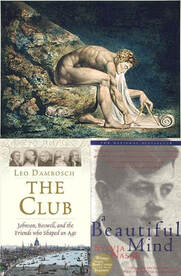
The location of afternoon refreshments has changed over the years. It is now located on WhatsApp. Three months ago it was in Daybreak. Some of the earliest incarnations were in Cupan Tae and Renoir’s. The walls of the former were decorated with UCC sporting photographs. One picture of a second arts group (many studying economics) included three future Irish rugby internationals. The name of the latter venue was used to label those economists taking afternoon refreshments as “The Renoir Club”. When the location changed to the Coffee Station, the label became “The Clump”.
Friday coffee in the sunshine outside the Station was a frequent occurrence. Lively debates could ensue. The publication of estimates of fiscal multipliers for different countries prompted one of the more memorable debates. It stretched over a number of weeks. It resurfaces occasionally. Sport also provides plenty of material for debate. The exact topic up for discussion can depend on what is topical and who is present. Sport can turn out to be a more common topic than economics. (Meeting one senior academic economics as we were returning one day, we asked his views on the relative importance of economic forecasting, only to be told “I’d hate to go for coffee with ye if that is what ye talk about.”)
Our gatherings won’t go down in history. Others have. Anybody who has read A Beautiful Mind by Sylvia Nasar cannot help but be struck by the amount of times John Nash and his colleagues would meet for coffee. Company seemed to help Nash’s troubled mind. As Adam Smith said “Society and conversation, therefore, are the most powerful remedies for restoring the mind to its tranquillity”. Smith himself was one of those individuals who contributed to the tranquillity of the mind of Samuel Johnson as explained in The Club by Leo Damrosch.
The coronavirus has disrupted our gatherings and academic life in general. We are under a version of house arrest. Of course, there can be a silver lining to this cloud. In his discussion of the tactics for self-command, Thomas Schelling suggests we should incarcerate ourselves. To illustrate the point, he recounts an interaction between George Steiner and Georg Lukacs. The latter said “You want to know how one gets work done? House arrest, Steiner, house arrest!” It applies equally to students. There is little evidence that Issac Newton’s studies were adversely impacted by the Plague of 1665-6. William Blake’s criticism of him was that he was too focused on his studies to appreciate the beauty of nature. Maybe that’s what our colleague meant when he said he would not enjoy a coffee conversation about economics.
 RSS Feed
RSS Feed